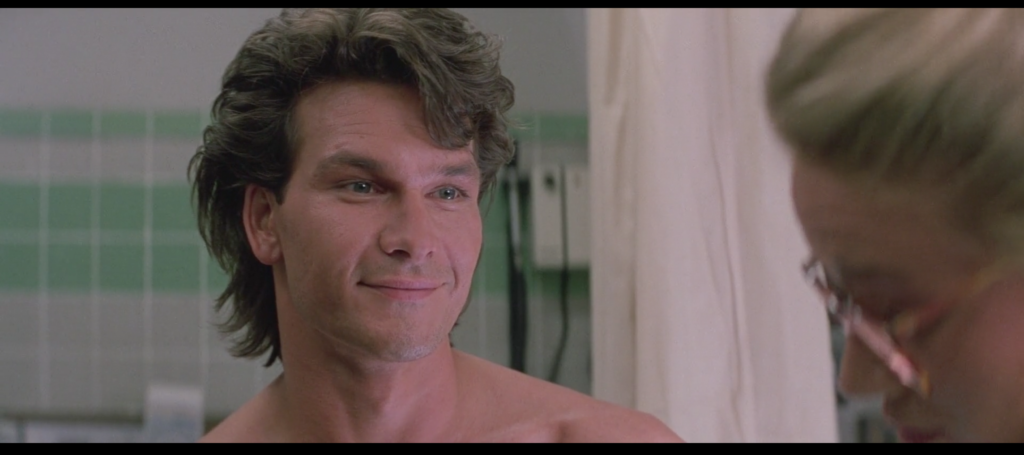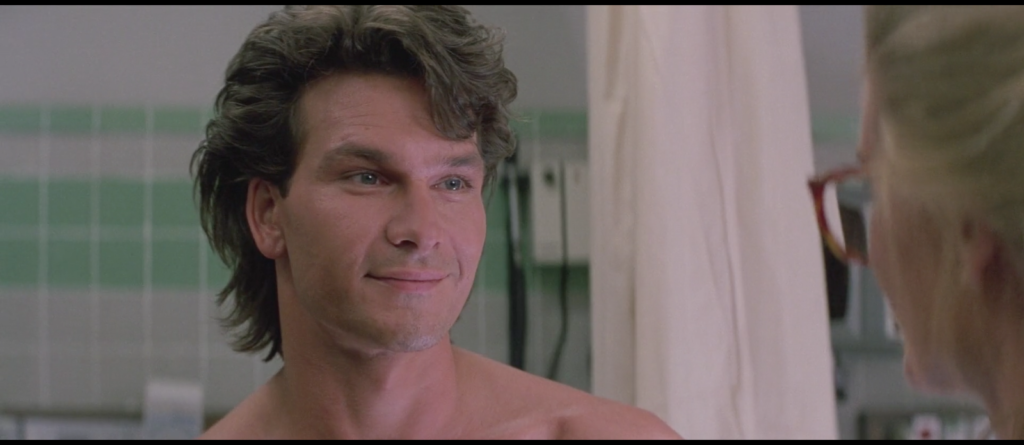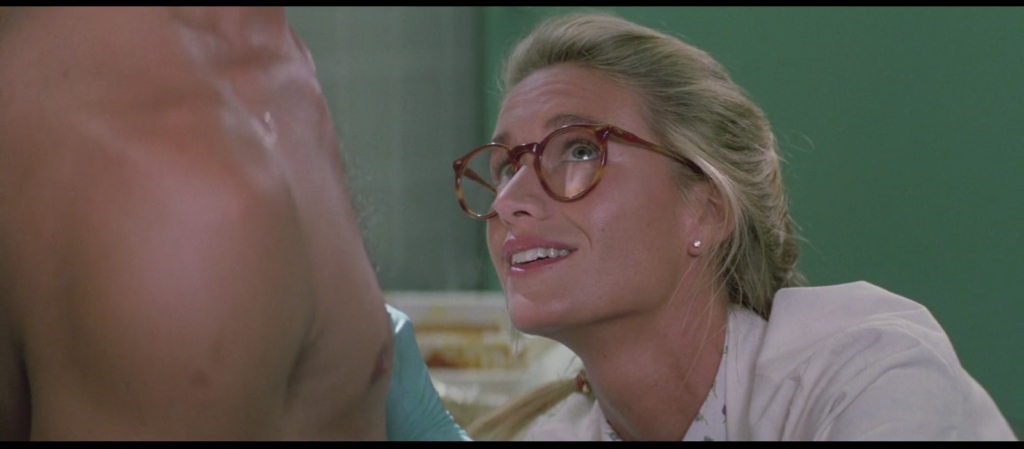Posts Tagged ‘pain don’t hurt’
PAIN DON’T HURT down to its final copies
November 23, 2024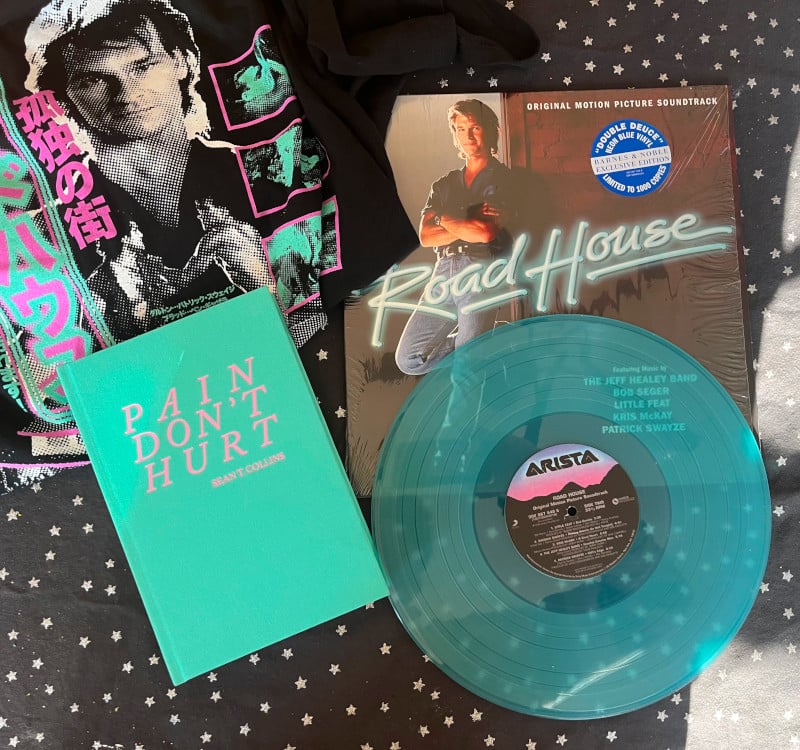
My publisher Mutual Skies informs me there are only 25 copies left in the neon-pink-and-sea-green second hardcover edition of my book Pain Don’t Hurt: Meditations on Road House. If you don’t have one, now’s the time to buy one!
STC vs. Junk Filter on Road House 1989/2024!
April 15, 2024Pain Don’t Hurt on sale from STC
February 13, 2024PAIN DON’T HURT 2ND EDITION HARDCOVER NOW ON SALE
February 3, 2023PAIN DON’T HURT ALMOST GONE
September 19, 2022As I write this, my book Pain Don’t Hurt: Meditations on Road House is down to its last two copies. After this, signed copies will be harder to come by, and it’ll be a while before any copies are available at all. You’re gonna wanna act now, mijo.
PAIN DON’T HURT RETURNS
July 22, 2022PAIN DON’T HURT PAPERBACK EDITION ON SALE NOW
February 19, 2021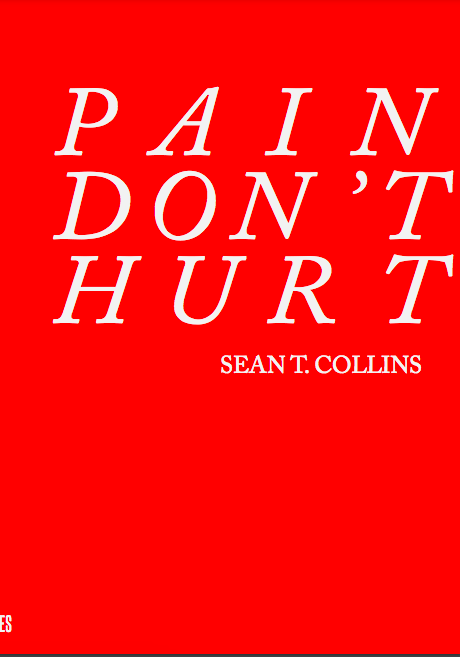
A limited number of signed copies of Pain Don’t Hurt, my book about Road House, are now available at Matt Zoller Seitz’s online store. If history is any indication they’ll move fast. Go get ’em!
Pain Don’t Hurt Extra: The Gruesome Oral History of the ‘Road House’ Throat Rip Scene
August 4, 2019Collins: Perhaps we’ll never know the why of the throat rip. [Editor’s note: Herrington “got the idea for Jimmy’s death from a story he’d heard back in college about a martial artist tearing out an enemy’s trachea,” according to the Ringer.] It does recur throughout the film as something [Swayze] is struggling with. It’s a lapse on his part. Ripping people’s throats out is something he has to move past in his life.
And who hasn’t felt that way? All of us have been ripping people’s throats out in our own way, and we all deal with it in our own way.
Amazingly, AMAZINGLY, I am quoted as an expert in Quinn Myers’s oral history of the throat-ripping scene from Road House for Mel Magazine. Like, it’s me and then it’s Mike Nelson. Do I reference A Hard Day’s Night and America’s Next Top Model in a single quote? You bet I do. But that’s beside the point—this is a tremendously informative look at what went into making that whole incredible fight scene, featuring actor Marshall Teague, the stunt coordinators/fight choreographers, and the Foley artist, as well as me and Mike freaking Nelson.
191. Pain don’t hurt revisited
July 10, 2019When I first addressed “pain don’t hurt” I did so from the perspective of Dr. Elizabeth Clay. She’s in the process of mending a knife wound in the side of a man who has to be the single oddest person she’s ever treated, and he drops that on her? Once you’ve seen the whole movie, once you know what we know about her—her reaction to Dalton’s violent job, her feelings for him as a person she cares about and is more afraid for than afraid of, her past relationship with Brad Wesley for whom the opposite is true—you know that line probably knocked her on her ass a bit. Enough to get her to accept his offer of a date for coffee, anyway.
But look at him! Look at the shit-eating grin on the face of James Dalton after he tells a trauma surgeon or whatever she is that pain don’t hurt. Actually, scratch that, just look at the grin, the smile, the smiling eyes too. Patrick Swayze, the god, at work, showing you just how smitten he is with this woman already. I’ve seen lovers in real life look at each other when the other isn’t watching, and that’s what it looks like. Goofy, glad, unguarded. It’s moments like these when you take off your metaphorical shirt and expose your figurative wound and think “I trust this person to care for this” and just smile at how lucky you are to have found them.
It changes how we read Dalton’s self-evident self-satisfaction when he says his three-word maxim, doesn’t it? Because he’s proud of the line, and he’s even prouder of the lifetime of experience in word thought and deed that led him to draw that conclusion, but he’s proudest of having said it to this fascinating woman.
I’m not saying he’s like a little boy trying to please Mama or a puppy gazing with love at his master. I don’t think Dalton feels subordinate to her in that way any more than he feels subordinate to anyone else save Wade Garrett. (Man, that’s an essay waiting to happen.) I’m saying he’s pleased to show her the best of himself, in every respect: his perfect body, his sharpened mind, and his mastery over both of them. He’s happy to impress her. He’s happy to be impressive. Judging from his face I don’t think he’s ever been happier to be impressive. He’s finally found someone worth impressing.
100. Pain don’t hurt
April 10, 2019Look, all he’s saying is that it doesn’t bother him that much. Why would you doubt him? You’ve just read his life story in the form of a medical file. Thirty-one broken bones, two bullet wounds, nine puncture wounds, and four stainless steel screws. To these you are about to add nine staples, to close the knife wound he incurred in the process of physically fighting multiple armed attackers in his employer’s office. He’s a bouncer by trade, and taking it is as much a part of the job as dishing it out. More so, perhaps. The fight has to come to him, not the other way around. Until someone’s ready and willing and able to hurt him he’s off duty. So he turned down the anesthetic, so what. Pain is how he clocks in.
But there’s more to it than that, you suspect. Because the non-standard subject-verb agreement is…it’s cute, you guess, but you know he knows better. In that job, with that body—you’ll afford him the working-class hero affectation, but that’s what it is. Again, you’ve read his medical file. You know he went to NYU. You know he keeps this information in his medical file, for some reason. You suspect, in the minute you’ve known him you suspect, that he’s put real thought into the things he says, for better or…
Beautiful eyes. Blue. He has a blue-eyed smile, too, you think, unsure what that means, sure that it’s right.
You’ve been with violent men before. There, now you’ve thought it, now it’s out in the open. Not with you, never with you, not really, no not really, though you’ve heard things since then that you have a hard time believing yet also believe the moment you hear them. What’s that girl’s name? The blonde woman. She was with one of his boys, and you were with him, and you left town, and he went nuts, and now she’s with him and the boys have moved on, you suppose. Not with you, though, not really.
But Brad didn’t need to hit you to hurt you. His charisma, his worldliness, his ease with success, the way he promised you everything and meant it: When you saw it for what it was—for its casual cruelty and gross acquisitiveness and lack of empathy and small-minded understanding of what “everything” even means—and the life you’d planned to last forever kindled and burned and crumbled to ash in the light of it, oh, he hurt you then. He hurt you so badly you ran to get away from it, like the feelings lived in that godawful mansion and you could leave them there mounted on the wall, immobile, unable to reach you again.
Has he ever been hurt, you wonder? Hurt like that, you mean? Has Dalton comma James, he of the thirty-one broken bones, two bullet wounds, nine puncture wounds, and four stainless steel screws—and nine staples, don’t forget those—has this man who literally trailed blood into your hospital tonight ever tried to run away from the pain, only to learn just like you did that you take it with you no matter where you go?
You want to check his medical file for the answer. You wonder if maybe it’s on the same page that lists his alma mater. You want to laugh but that would be inappropriate.
But you have your answer. You may not want to believe it, because it’s safer not to. But the working-class hero with the NYU degree and the studiously sculpted body and the equally studiously sculpted speech, with the blue eyes and the smile, with the thirty-one broken bones and two bullet wounds and nine puncture wounds and four stainless steel screws and, soon, nine staples—he told you already.
He told you, when he said Pain don’t hurt.
No, you think. By comparison? No. No, it does not.
You’re still smiling, you realize, you’re still smiling and he’s still smiling as you turn to grab the stapler. As you feel his body through the latex of your glove and begin to repair what was broken you think Pain don’t hurt and you wonder how long the smiling will last.
082. Intimacy
March 23, 2019If there’s one thing the Marvel/Netflix shows, even the ones I’m not crazy about, have been good at, it’s tying their superhero/vigilante violence to moments of physical intimacy. Sometimes this involves the main characters having sex, and from Jessica Jones and Luke Cage to Luke Cage and Misty Knight to Matt Murdock and Elektra Natchios, those scenes have been hot across the board. That’s certainly true on this show as well, from Agent Madani and Billy Russo to David “Micro” Lieberman and his wife Sarah to [the Punisher] and Beth the bartender just last episode.
At other times the violence itself is intimate. This naturally tends to be the case more for the characters who lack super-strength than for those who do, but it’s true. Watching mortal men like Matt Murdock and Frank Castle be made vulnerable by the infliction of violence on their bodies is a display of intimacy. To quote myself quoting Barbara Kruger regarding another show, “You construct intricate rituals which allow you to touch the skin of other men.” Hallway fights are an intricate ritual indeed.
And then there are the moments of triage that occur after the battle is over. I’m thinking Luke Cage tending to Misty Knight’s mangled arm for damn near an entire episode (overlong thanks to Netflix Bloat, but still notable), or Frank Castle and Karen Page leaning into each other in an elevator after spending an entire episode trying to avoid being murdered by a mentally ill gunman. In this case it’s “Rachel” (if that is her real name), the shifty fugitive Frank’s been protecting for two episodes, removing a slug from Frank’s right buttcheek. Earlier in the episode, it’s her taking his boot off for him when he proves unable to do it himself. You see the same principle at work when Daniel Craig hugs a crying Eva Green in the shower after a killing spree in Casino Royale, or when Bruce Willis has a heart to heart with Reginald Vel Johnson while he picks shards of glass out of his bare feet in Die Hard, or even when Patrick Swayze and Kelly Lynch meet cute while she staples a knife wound in his side in my beloved Road House. Sylvester Stallone, the actor who at his best most reminds me of what Jon Bernthal does, constructed two entire franchises around the idea that there’s something interesting about watching his perfect body get beaten to shit. Moments like this make the violence real and draw those of us who’ve never experienced such combat into the moment by reminding us we all share the same basic physical vehicle for navigating the world around us.
When I went searching for this quote I’d forgotten all about including Road House as an example of the tendency I’m discussing, but there you have it. The first thing Dr. Elizabeth Clay does with Dalton, after ribbing him for having gotten the shit kicked out of him over and over for years, is staple shut the gash in his side. She’s up close and personal for this, face inches away from armpit and chest hair and nipple. Often she looks up and grins at him, and if you’ve ever seen the phrase “slow smile” used in reference to a sexy person in a book and want an illustration of the concept, you’ve got one. I’m sure I don’t need to underline what the relative positioning of their heads suggests. I mean, this is a person who meets the man she will fall in love with for the first time when he’s shirtless and waiting for her to touch and heal his body. At this point she’s never seen him with a shirt. (Start as you mean to go on, I suppose.) And in the reverse, Dalton first sees the woman he’ll fall in love with when she’s approaching him to inject him with a needle and fire metal staples into his knife wound, a fate to which he stoically submits, other than that he rejects the needle and the dose of anesthesia that comes with it for reasons described in the title of this essay series.
To say that all of this supercharges their subsequent interactions with erotic intimacy is to understate the case considerably. I know people have mixed feelings about their sex scene but if you can watch their first couple of dates without wanting them to bang instantly you’re a stronger person than I am. It all begins here. So does the sexualization of Dalton’s mentor Wade Garrett, whose chemistry with the Doc is phosphorescent and who exposes his pubic hair to her in the course of revealing a scar given to him by a woman as part of their getting-to-know-you evening out as a threesome. I think there are even echoes, faint but audible, of the way Elizabeth looks at Dalton during this scene in how various men who either want to or will commit violence against Dalton look at him as well. When they finally do battle, Jimmy in particular will sexualize that violence.
Considering how resolutely un-sexy most of the bouncer-goon combat is in this film, to inject this pain-pleasure connection into the proceedings and have it pay off frequently moving forward is a minor miracle. Most action movies of the period were content with the corniest, fanserviciest, most sexist, least interesting ways of depicting sex. Road House has some thoughts in its head after all, and they’re kind of dirty.
Pain Don’t Hurt: The Patreon
March 4, 2019The name…is Sean T. Collins. I’m a writer and critic who’s appeared in The New York Times, Rolling Stone, Pitchfork, Vulture, Decider, Grantland, the AV Club, and more. I’m also the co-founder (with Stefan Sasse) of The Boiled Leather Audio Hour, a podcast about Game of Thrones & A Song of Ice and Fire, and the co-editor (with Julia Gfrörer) of Mirror Mirror II, an anthology of horror/erotic/gothic comics and art published by 2dcloud. I’m The Original Bad Boy of TV Criticism. I gave this nickname to myself as a joke but it stuck so it counts.
Also, I love Road House, the 1989 Patrick Swayze action movie. Road House is the story of Dalton, a famous bouncer whose quest to free a small town from the iron fist of the guy who is on the verge of opening the area’s first JC Penney will lead directly to the deaths of over half a dozen men. I love Road House so much in fact that in late 2018 I decided I would write an essay about Road House every single day for an entire year, that year being 2019—on top of the TV recaps, album reviews, film and television recommendations, and broader essays and deep dives I write for a living.
In the words of Road House, I’d like to make a better life for myself.
By subscribing to my new Patreon you’ll make Pain Don’t Hurt a paying concern. If you’re a fan of my Road House stuff this sells itself. But the beauty of getting paid to write about any one thing is that it makes it possible to write even more about other things. If you’ve ever enjoyed anything I’ve written, subscribing here is the best way to see more of it—both through tiered rewards that give you access to bonus stuff and simply by helping my family and I stay afloat so I can do more of the writing I love. (I love to write even more than I love Road House, though it’s obviously close.)
Friends, it’s time to be nice. Join the Jasper Improvement Society today! Thank you for your support!


